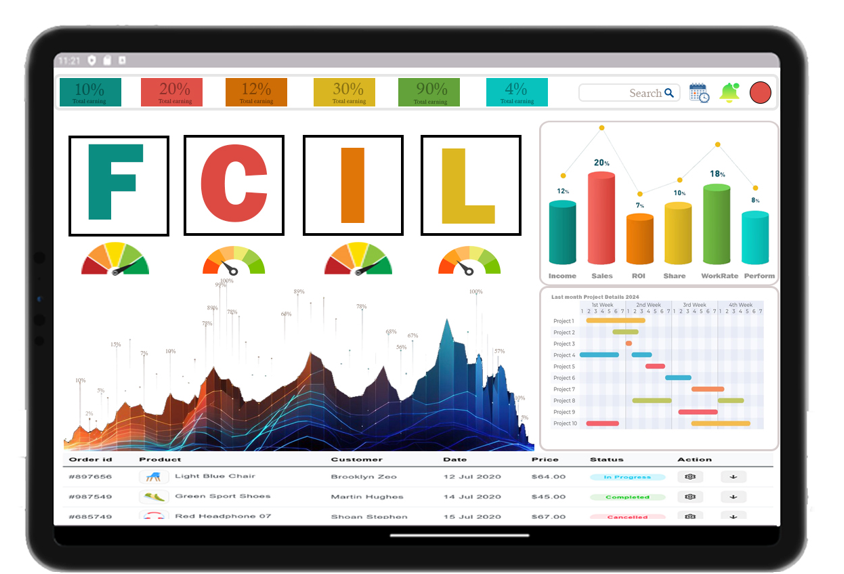Strategic planning is a critical component of any successful business. It involves setting long-term goals, developing a roadmap to achieve them, and continuously monitoring progress to ensure that the business stays on track. However, the complexity of this process can often be overwhelming, particularly for larger organizations or those with multiple departments. This is where strategic planning software comes into play, offering a range of tools and features designed to streamline the planning process, enhance collaboration, and drive better decision-making.

1. Enhanced Organization and Structure
One of the primary benefits of strategic planning software is its ability to organize and structure your business plans effectively. Traditional methods of strategic planning, such as spreadsheets and paper documents, can be cumbersome and prone to errors. Strategic planning software centralizes all relevant information, making it easier to access and manage. This organized structure ensures that all elements of your strategy, from goals and objectives to action plans and timelines, are aligned and cohesive.
Moreover, the software allows you to break down your strategic plan into manageable components, such as goals, initiatives, and tasks. This not only makes the planning process more manageable but also ensures that everyone in the organization understands their role and responsibilities in achieving the overall business objectives.
2. Real-Time Tracking and Flexibility
In today’s fast-paced business environment, the ability to adapt to changes is crucial. Strategic planning software provides real-time tracking of your business plans, allowing you to monitor progress and make adjustments as needed. Whether it’s a shift in market conditions, a change in customer preferences, or internal organizational changes, the software enables you to respond quickly and efficiently.
Real-time tracking also ensures that your strategic plan remains relevant and up-to-date. You can easily identify areas where your plan may be falling short and take corrective action before it becomes a significant issue. This flexibility is essential for maintaining momentum and ensuring that your business continues to move forward toward its goals.
3. Data-Driven Decision Making
Strategic planning software often includes robust analytics and reporting tools that provide valuable insights into your business’s performance. These tools allow you to analyze data from various sources, such as financial reports, market research, and customer feedback, to make informed decisions.
By leveraging data-driven insights, you can identify trends, opportunities, and potential risks that may impact your business. This proactive approach to decision-making helps you stay ahead of the competition and make strategic adjustments that align with your long-term goals. Additionally, the software’s reporting capabilities enable you to communicate your progress and insights to stakeholders, ensuring that everyone is on the same page.
4. Enhanced Collaboration and Communication
Collaboration is key to successful strategic planning, especially in organizations with multiple departments or teams. Strategic planning software facilitates collaboration by providing a centralized platform where all team members can access, update, and share information. This ensures that everyone involved in the planning process has access to the latest data and can contribute to the development and execution of the strategic plan.
The software also enhances communication by providing tools such as messaging, commenting, and notifications. These features allow team members to discuss ideas, provide feedback, and stay informed about changes or updates to the plan. Improved collaboration and communication result in a more cohesive and unified approach to achieving your business objectives.
5. Streamlined Processes and Automation
Strategic planning software automates many of the routine tasks associated with the planning process, such as updating goals, generating reports, and tracking progress. Automation saves time and reduces the risk of human error, allowing your team to focus on more critical aspects of the strategic plan.
For example, the software can automatically update progress on specific goals or initiatives based on the completion of tasks or the achievement of milestones. This not only ensures accuracy but also provides a real-time view of your plan’s progress. Additionally, automated reporting tools can generate detailed reports on various aspects of your strategic plan, making it easier to track performance and communicate results to stakeholders.
6. Scenario Planning and Risk Management
Another significant benefit of strategic planning software is its ability to support scenario planning and risk management. The software allows you to create and analyze different scenarios, helping you anticipate potential challenges and opportunities. This proactive approach enables you to develop contingency plans and strategies to mitigate risks, ensuring that your business is prepared for various eventualities.
Scenario planning also helps you evaluate the potential impact of different decisions or changes on your business. By simulating various outcomes, you can make more informed decisions that align with your long-term goals and minimize potential risks.
7. Alignment Across Departments
For businesses with multiple departments or teams, ensuring alignment with the overall strategic plan can be challenging. Strategic planning software addresses this issue by providing a platform that aligns departmental goals and initiatives with the broader business objectives. This alignment ensures that all departments are working toward the same strategic goals, improving overall business cohesion and effectiveness.
In conclusion, strategic planning software offers numerous benefits that can enhance the effectiveness of your business plans. From improved organization and real-time tracking to data-driven decision-making and enhanced collaboration, this software provides the tools and features necessary to drive your business toward long-term success. By investing in strategic planning software, you can streamline your planning processes, stay agile in a changing business environment, and ensure that your organization is well-positioned to achieve its goals.